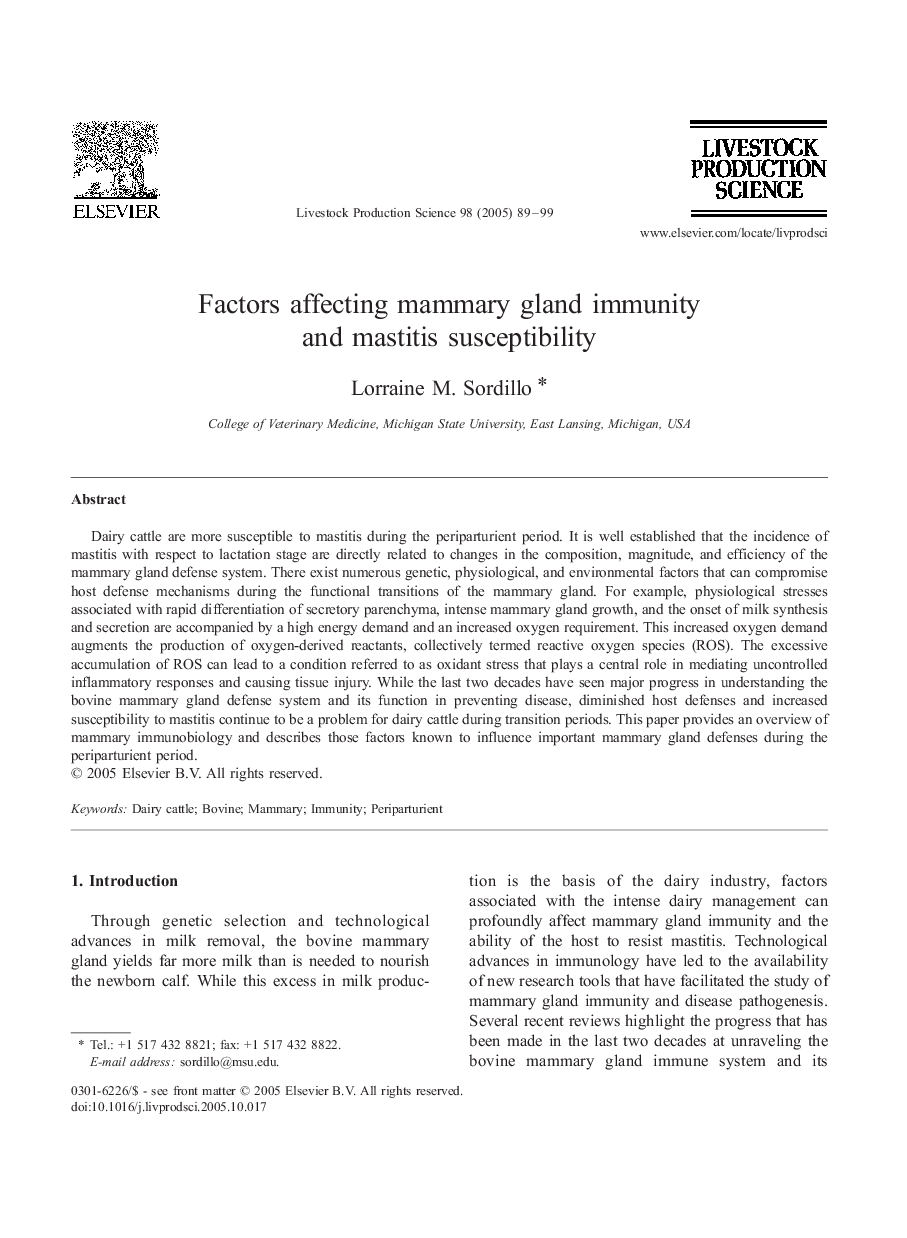| Article ID | Journal | Published Year | Pages | File Type |
|---|---|---|---|---|
| 8982563 | Livestock Production Science | 2005 | 11 Pages |
Abstract
Dairy cattle are more susceptible to mastitis during the periparturient period. It is well established that the incidence of mastitis with respect to lactation stage are directly related to changes in the composition, magnitude, and efficiency of the mammary gland defense system. There exist numerous genetic, physiological, and environmental factors that can compromise host defense mechanisms during the functional transitions of the mammary gland. For example, physiological stresses associated with rapid differentiation of secretory parenchyma, intense mammary gland growth, and the onset of milk synthesis and secretion are accompanied by a high energy demand and an increased oxygen requirement. This increased oxygen demand augments the production of oxygen-derived reactants, collectively termed reactive oxygen species (ROS). The excessive accumulation of ROS can lead to a condition referred to as oxidant stress that plays a central role in mediating uncontrolled inflammatory responses and causing tissue injury. While the last two decades have seen major progress in understanding the bovine mammary gland defense system and its function in preventing disease, diminished host defenses and increased susceptibility to mastitis continue to be a problem for dairy cattle during transition periods. This paper provides an overview of mammary immunobiology and describes those factors known to influence important mammary gland defenses during the periparturient period.
Related Topics
Life Sciences
Agricultural and Biological Sciences
Animal Science and Zoology
Authors
Lorraine M. Sordillo,
